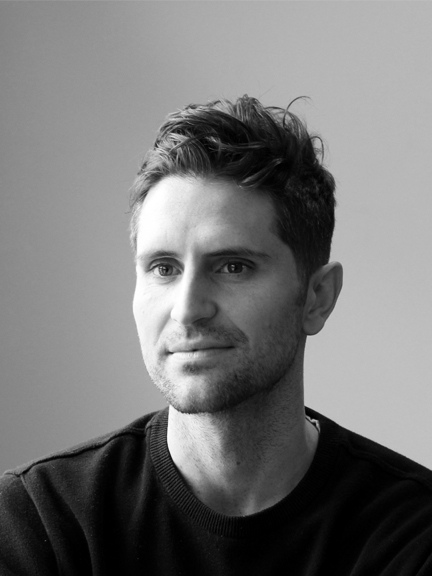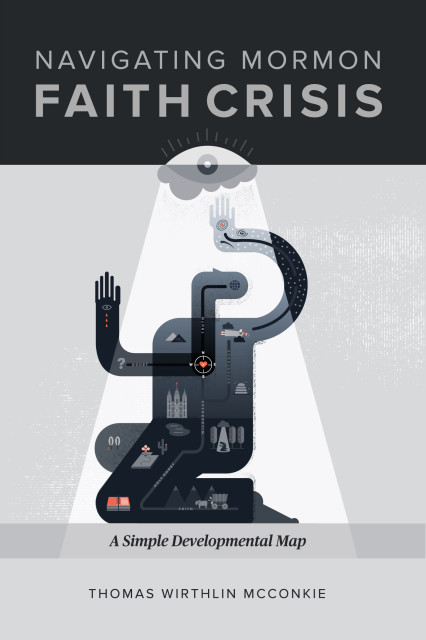
This is the second of two posts on a new book that has changed my perspective on some things: Thomas Wirthlin McConkie’s wise and sensible guide Navigating Mormon Faith Crisis.
See here for Part 1, which outlines the 5 stages of Mormon faith and offers my preliminary thoughts on what it might mean for people who are struggling in the LDS Church or feel despair now that they have outgrown the certainty they once experienced.
Today, I follow up on that post with this Q&A with McConkie, touching on some highlights from the book. I encourage you to check it out at MormonStages.com.
RNS: Your book draws on the psychology of adult development to help Mormons who are having a faith crisis understand that what they’re feeling is normal, and can even result in something better.
McConkie: Yes. Of course, not every crisis is indicative of something developmental going on, but development is probably a primary catalyst for many. Development is often a hidden factor in these faith transitions that we see so commonly in the church, and if we understood them better, we would respond in much more appropriate and constructive ways.
My experience in Mormon culture is that we often respond with fear if someone starts speaking in a different language, expressing their faith in a different way. In response to that fear, we may inadvertently shame people and discourage them from leaning in to these explorations.
This can be damaging to both sides. Think about faith transition as new growth, a delicate bud that’s just breaking ground. We’ll trample it like a weed if we don’t see it for what it is. This not only destroys something elegant and beautiful emerging in the individual, but it creates a culture of fear in the community.
RNS: I was intrigued by something you say in the book about Mormons being told that it’s fine to have doubts as long as they don’t talk about them. The fear is that if we ever admit to doubt openly, it might damage someone else’s testimony. You give a powerful analogy drawn from the world of biology to argue that the opposite is the case: we do damage when we don’t introduce real human doubt. I want to quote from this at length:
Consider the irony in modern medicine that hospitals, our cultural houses of healing, have become notorious for spreading lethal infections. These antiseptic environments pave the way for virulent strains of bacteria to ravage patients whose immune systems are compromised. Analogously, we can look to the recent eruption of discussion around Mormon history in our own communities. Who is this outbreak affecting the most? It is not those who have grown up in ‘germ-ridden’ environments where ideas and information of all kinds freely circulate. Those most affected by this new bug teeming in our ecosystem are those who lack previous exposure. How, then, do we build more resiliency in our faith communities?
McConkie: Biodiversity is critical ecologically. Extending the metaphor, developmental diversity is critical for our faith community.
We seem to have unintentionally created an antiseptic environment dominated by one species in Mormon culture: certainty. When you look at the earlier stages, they are quite doubt-averse. (See here for an explanation of the five stages.) They intuitively look for certainty and resist competing truth claims. It’s at the Achiever stage when people start to actively search out all the information they can, and then weigh it according to their own instincts and values.
Mormon culture as I see it is growing into this range of greater personal authority, as well as greater tolerance of uncertainty. And of course, growth rarely comes without growing pains.
RNS: So everyone is at a different place on this spectrum of development. How can we have a better and more edifying experience at church with this in mind?
McConkie: When we understand the terrain of adult development, we can assume good faith and trust where other people are coming from. Rather than dismissing someone’s perspective, we start to understand that this person is representing a genuine worldview—the intimate and unique way that they experience the world.
That awareness alone is vital. Without that awareness, we might assume that other people are simply defective versions of ourselves. They don’t “get” it, so we think that if we just talk louder and faster they might see the light. What I love about adult development is that it shows us in a rigorous way that everybody kind of gets it, and we’re edified by listening to what the other person kind of gets.
 It’s a really interesting practice to go to church with this awareness. When I’m at church looking for an uplifting sermon or lesson, I’m often assuming that each talk should serve and teach me. But what if our learning edge is to hold a space for somebody else to grow in? What if my job is actually to be a very attentive presence and loving space where people can feel totally free to express their deepest concerns and yearnings?
It’s a really interesting practice to go to church with this awareness. When I’m at church looking for an uplifting sermon or lesson, I’m often assuming that each talk should serve and teach me. But what if our learning edge is to hold a space for somebody else to grow in? What if my job is actually to be a very attentive presence and loving space where people can feel totally free to express their deepest concerns and yearnings?
RNS: Whew. I don’t live up to that.
McConkie: Me neither! It points to the parent-child relationship. I often show up at church as the child, wanting to be taken care of, but what if I’m also the parent? What if it’s also my job to give others the experience of being heard and received and honored? It’s vital to our development to be able to take both these roles on.
RNS: Where are most Mormons in their faith development?
McConkie: One thing I’ll say is that people learn a little bit about development, or they’ll read my book, and make comments like “Oh, my bishop is a total Diplomat.” But this misses the point: we’ve all got the DNA for all of the stages in us. In a given ward family, members will have developmental capacities that span the entire spectrum. For me, the critical question is whether we can create community to unlock and express these beautiful human qualities.
RNS: You note that many Mormons tend to blame themselves if they have a faith crisis, and they redouble their efforts to follow every single commandment to the letter. What do you say to help those people?
McConkie: My heart goes out to them. How many people do we know who are in that place, and are given the advice to pray more and read their scriptures? Not that there’s anything wrong with that advice, but to me it’s a question of nutrition. Sometimes it feels like we’re eating the husks instead of the grain. We aren’t getting the same nourishment we once did from the same practices. We need to upshift our spiritual practices to a place where they’re developmentally appropriate to us.
This is actually the subject of my next book. Adults who are moving into later stages need practices that nourish them. We can take the Christian tradition, which is more foundational in its current expressions, and extend its patterns and praxis to the upper reaches of our spiritual potential.
We can grow unbounded. Isn’t that the message of Mormonism in the end?
